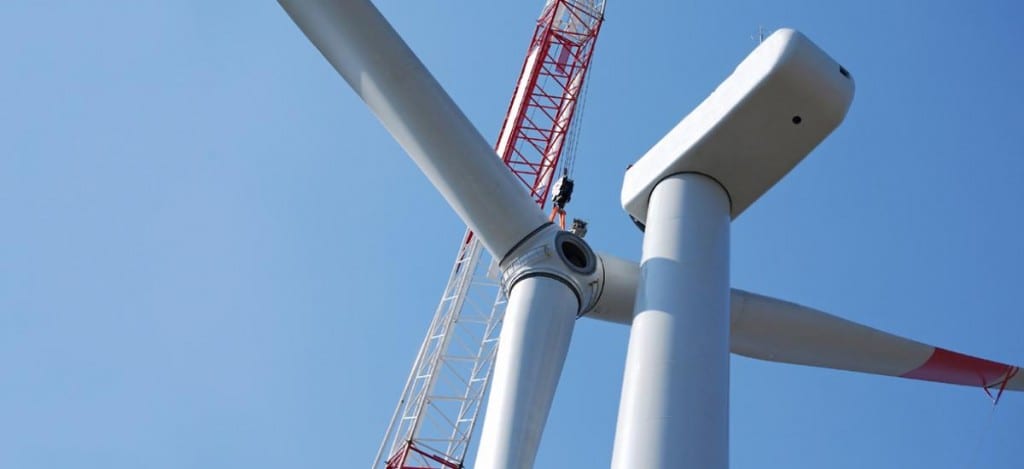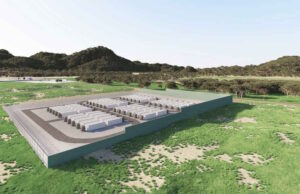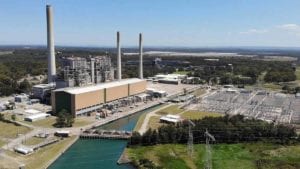Federal Labor has finally put some meat on the bones of its proposed renewable energy target, with the release of some policy detail into how it plans to drive the shift to 50 per cent renewables by 2030.
The ALP said on Thursday that a Labor government would award long term power purchase agreements to ensure that the Commonwealth government lift its share of renewables for its own electricity needs to 50 per cent by 2030.

The contracts would span 10-15 years, the party said, and “would provide the certainty needed for long term investment in the renewable energy sector.”
And while Labor does not say how it would procure these contracts – perhaps through reverse auctions – the policy seems to follow a similar mandate to South Australia, which is looking at 100 per cent “low carbon” energy.
Labor’s proposal is the first policy detail about how it might meet its broader target of having half of the nation’s electricity supplied from renewable energy by 2030, and another step as it seeks to differentiate itself from the Coalition, which it accuses of pulling the rug out from under the wind and solar sectors.
“In the Abbott-Turnbull government’s first year, large-scale renewable energy investment fell by a stunning 88 per cent. Small-scale renewable installations, such as rooftop solar, have also taken a tumble,” Labor leader Bill Shorten said.
“This government has done all it can to destroy this industry. Almost 3,000 jobs directly involved in the renewables industry have been lost under this Government – a sector which should be growing jobs, not losing them.
“Labor’s plan will help Australian businesses and households seize the opportunities of renewable energy.”
Labor is yet to reveal the exact details of how it will meet its broader 50 per cent target, although it has hinted that it may not continue with the current renewable energy target in its current form, and could adopt reverse auctions, which have been successfully used by the ACT government.
While the rest of the world has enjoyed record-breaking growth and investment, Australia’s investment remains well below what is needed for the 2020 target, partly because of what Ernst & Young has described as the “mismatch” between the 3-5 year PPA terms currently being offered and the 15 year terms that developers want to bank.
EY Oceania Power & Utilities Leader Matt Rennie said this market disconnect is holding back a “mountain of global cash” looking for alternative energy infrastructure investments.
“The race to meet the current RET is now driving deals, but ultimately longer-term policy certainty will be required to drive long-term growth in the renewable energy in Australia, and that is what the sector will be looking for following the upcoming Federal election, regardless of who is in power,” Rennie said.
And in a report released today gauging the progress of the current RET of 33,000GWh by 2020, the Clean Energy Council noted that investment in renewables in Australia was still challenged by “a number of factors” outside the industry’s control.
“The current RET policy has a target that peaks in 2020 (just four years away) and the scheme ends in 2030, which creates uncertainty with regard to long term merchant LGC prices,” the CEC report says.
Beyond these meat and potato issues of market access and fair play, the Labor proposal puts renewable energy at centre stage of the party’s election campaign, and deepens the apparent ideological divide between the two parties on matters energy and environment.
Indeed, while Turnbull’s “innovation” Coalition seems to be tethering itself more firmly to its right-wing ideal of more fossil fuel jobs and resources, Labor looks like its being pulled in the opposite direction by some of its more green-leaning members, who are reportedly agitating for a winding back of fossil fuel subsidies and support for new coal.
While Shorten has restated that “coal mining will still go on” under a Labor government, he has also said it “won’t be expending any resources on the Adani mine,” and stressed that his party’s focus is on renewables, as the world tries to avoid dangerous climate change.
“The Liberals’ climate change policies have been an abject failure. Malcolm Turnbull knows this, and yet he is too scared of his own backbench to do anything about it,” said Shorten in the media release.
Note: A spokesperson later said the government’s purchases of electricity are fragmented, with each department and agency responsible for their own electricity contracts, which span different electricity markets and different time periods.
“As part of our reform, this fragmented approach will be coordinated, with greater central oversite of electricity purchases.
“The first part of our reform to is to work with all government agencies to coordinate total government electricity use. Once this occurs we will undertake a tender process to award Power Purchase Agreements in renewable energy.”








